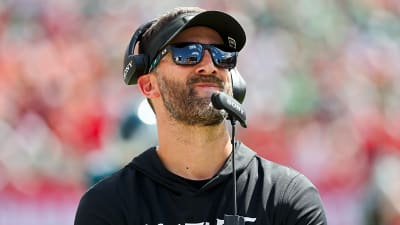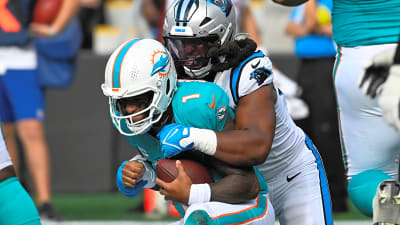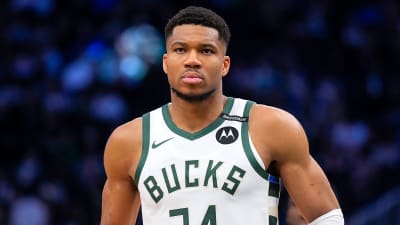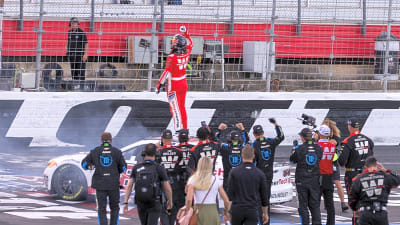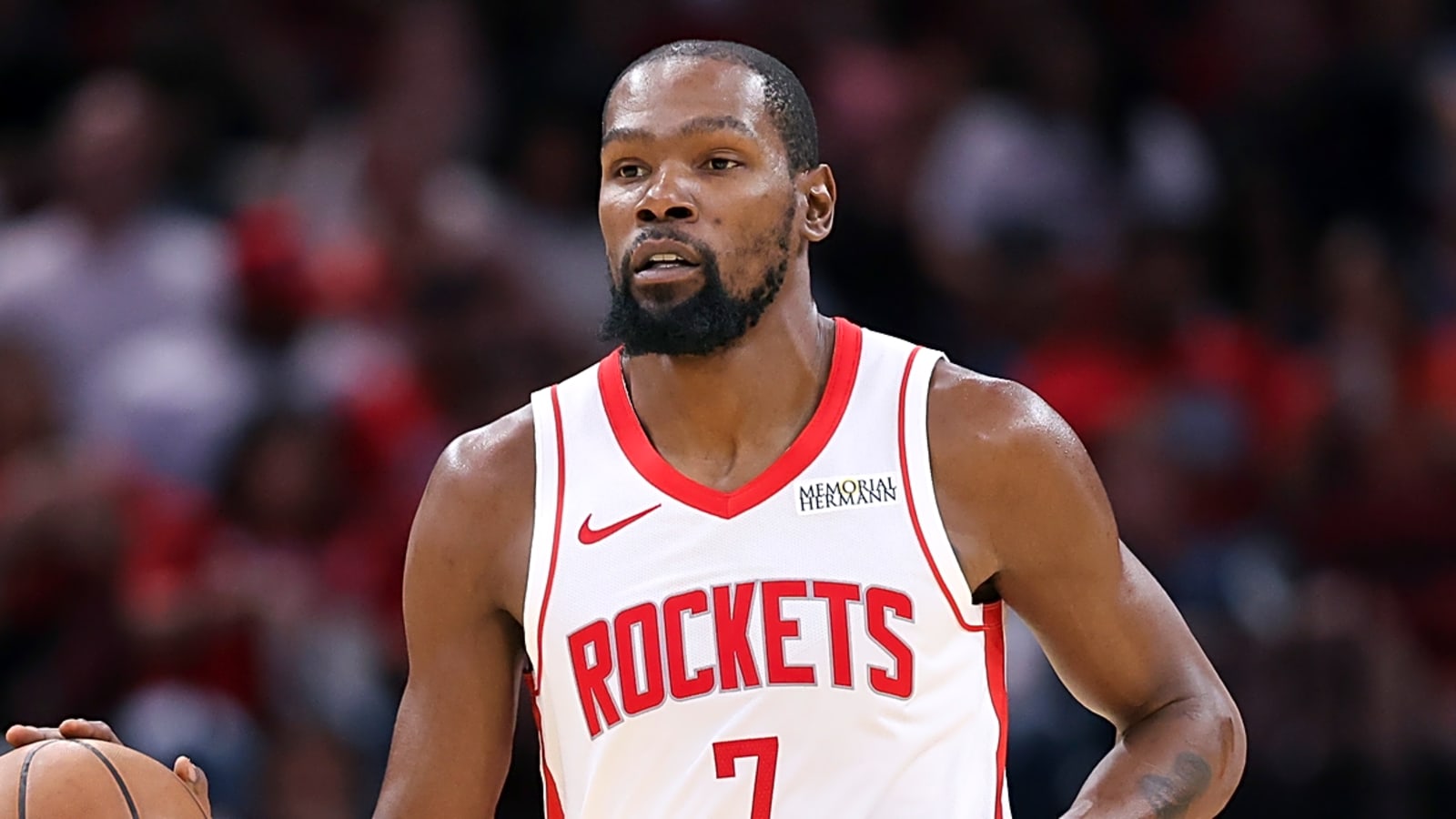
What we learned from Rockets' first game in Kevin Durant era
The Houston Rockets didn’t need fireworks to announce a new era. They just needed balance.
In Kevin Durant’s debut — a 140–127 preseason win over the Utah Jazz — the Rockets didn’t play like a team trying to reinvent themselves. They played building on what worked: defense, depth and energy. And that’s what made this first glimpse of the Durant era so intriguing.
At 37, Durant doesn’t have to be the engine. He has to be the finisher. And Houston, for the first time in years, might have the pieces to let him thrive that way.
Defense remains the foundation
What stood out most wasn’t Durant’s 20 points on 7-of-10 shooting — it was how little he needed to do for Houston to look complete. The Rockets defended, rebounded and controlled tempo, showing a level of structure Phoenix rarely achieved.
Ime Udoka’s defensive system still dictates their identity. Amen Thompson and Tari Eason headlined that effort, flying in transition and forcing turnovers that led to points. Thompson looked sharper, scoring 19 points, seven rebounds and six assists, using his size and speed to disrupt passing lanes. Eason added his usual physicality, helping lock up Utah’s wings.
That activity helped mask Houston’s occasional lapses in spacing. Their defense doesn’t just protect them — it fuels their attack. The Rockets won’t outshoot anyone from deep yet, but they can outwork them.
The biggest question entering the night was how Houston would handle playmaking without Fred VanVleet, who’s out for the season. The answer was clear: by committee.
Sharing the playmaking load
Alperen Sengun looked like a true star, finishing with 13 points, 13 assists and seven rebounds. He facilitated out of the high post like a young Nikola Jokic, hitting cutters, reversing the ball and stepping into jumpers to keep the defense honest. When the offense ran through him, Houston’s ball movement looked fluid instead of frantic.
Thompson helped steady the backcourt alongside Reed Sheppard, who contributed 11 points and moved the ball cleanly. Sheppard’s spacing and shooting allowed Thompson to attack downhill more confidently, while Sengun orchestrated from the elbows. For a team that lost its traditional point guard, the collective passing felt surprisingly polished.
That, combined with Durant’s scoring, made the offense feel balanced. Durant’s isolation possessions came naturally, not as forced late-clock heaves. He picked his spots, hit midrange jumpers and never looked rushed. That’s exactly the version of KD Houston envisioned — a half-court anchor who doesn’t have to shoulder 35 minutes of shot creation every night.
What also stood out was how seamlessly Houston’s young core played off him. They didn’t freeze or defer much. They defended, ran and attacked early, then let Durant take over when the game slowed down.
Houston still has issues to solve. Shooting consistency remains a weakness — the team hit only 31% from three — and their rotations will take time to settle. But the effort level, chemistry and flow were unmistakable. This wasn’t a team relying on one superstar. It was a system designed to allow its superstar to fit naturally.
The Rockets’ problem last season was never talent; it was cohesion. They defended but couldn’t score consistently. With Durant, they don’t need to choose. If this first game is any indication, Houston might finally have both — a defensive backbone that can run, and a scorer who can make every possession count late.
It’s just preseason, and it was only Utah. But after one night, the Rockets look like a team that knows exactly what it wants to be: fast, fierce, connected and finally complete.
More must-reads:
- Kevin Durant's 'dope' reunion plan hit with reality check
- Rockets confident extension with Kevin Durant will get done this month
- The 'Team USA Men's Basketball gold medalists' quiz
Breaking News
Trending News
Customize Your Newsletter
 +
+
Get the latest news and rumors, customized to your favorite sports and teams. Emailed daily. Always free!
